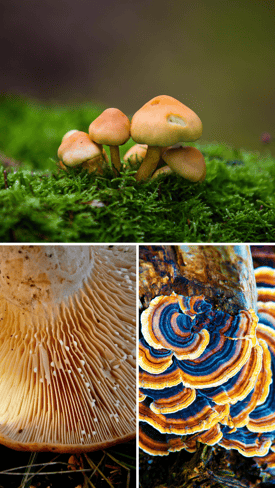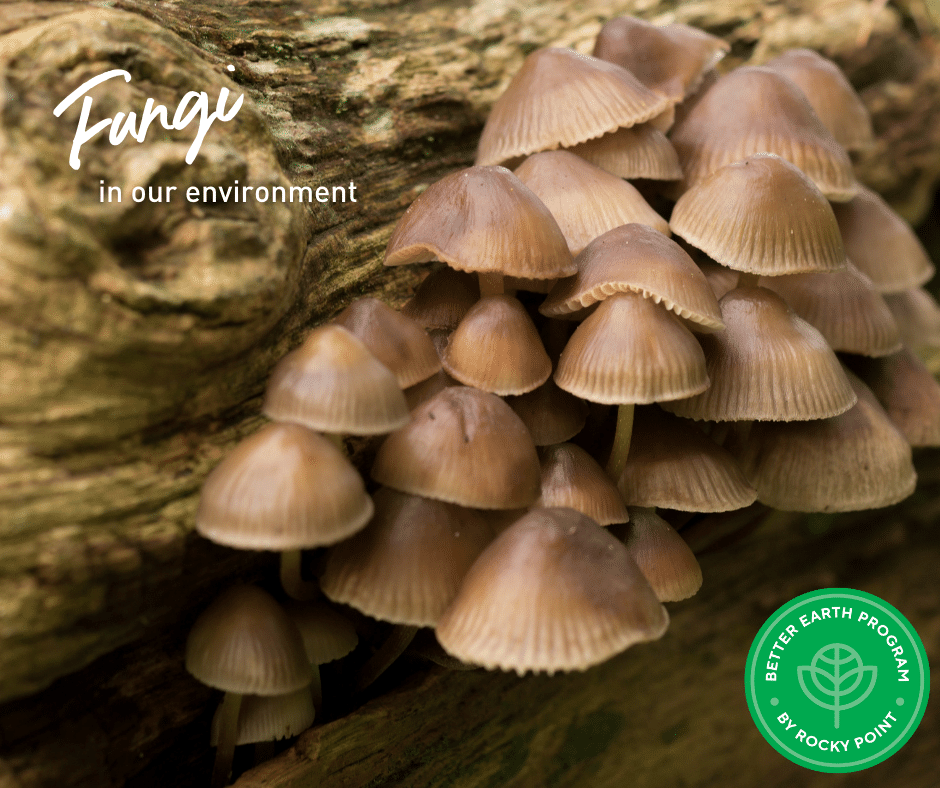There are many different species and types of mushrooms and many that you find popping up in the garden after rain that are not edible. These species still play a very important role in our lives because they are critical in maintaining the health of our soil microbiome.
Most of the cells of the fungi stay underground, and the mushrooms (the noticeable part) are the fruiting bodies (spore bearing fruit) of certain species of higher fungi. The vegetative tissues of these fungi  consist of huge lengths of microscopic, thread-like hyphae, and their aggregations known as mycelium, which grow underground in surface soils, feeding on and breaking down, wooden logs, organic debris, decaying leaves and in association beneficially with plant roots. Scientific research is now finding that
consist of huge lengths of microscopic, thread-like hyphae, and their aggregations known as mycelium, which grow underground in surface soils, feeding on and breaking down, wooden logs, organic debris, decaying leaves and in association beneficially with plant roots. Scientific research is now finding that
this underground fungal network plays an important role within our forests in maintaining tree health and more. Mindbogglingly these underground nets of cells called mycelium can stretch for kilometres underground and live for thousands of years!
Mushrooms you can eat!
With the homegrown movement surging ahead more than ever, edible mushroom growing is definitely on trend. And with good reason.
Mushrooms are easy to grow with a little know how, they are quick to crop, cost effective, virtually pest and disease free, a super food to consume and to top it off take up very little room. Not needing a garden or even sunlight for that matter to become a mushroom grower, means you can grow them in a tiny apartment, laundry, cupboard, garage… anywhere that’s cool, delivers humidity, relatively low light or protection from the harshest of the sun’s rays and protection from the elements.
There are oodles of types of mushrooms to choose from for your mushroom growing adventure and they can have quite varying growing methods. From buckets to boxes and even log set ups.
Looking for more great gardening info like this? Subscribe to the Better Earth Program to receive Better Earth Secrets Magazine direct to your inbox each season.
_MEB.png?width=842&height=596&name=RP_HorizontalColour(R)_MEB.png)



